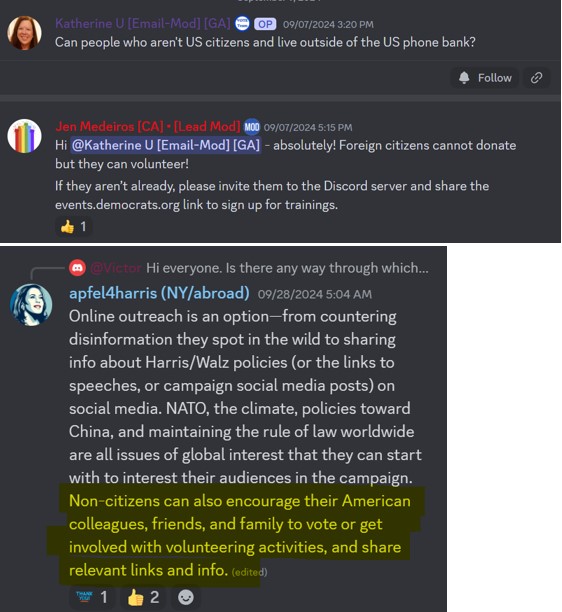History is linear, of course, rather than cyclical. What creates an illusion of the latter is the relative stability of human nature — compared to cultural designs — across time and place. A conglomerate of (a) basic instincts, (b) intellectual capabilities, and (c) social adaptability, it represents the same potential from one generation to another, effectively predisposing those in power to commit the same crimes and errors of judgment over and over.
Unlike (a) the imbecile, who is unable to understand them, (b) the psychopath, who is fearless and seemingly indifferent, and (c) the coward, who lies to himself and shirks responsibility, a healthy person learns from his experiences. Memory is essential for successful adaptation to the environment. Something similar applies to small and large groups with a common destiny, including neighborhood communities and nations.
In an “open society” with an ongoing, spirited debate, the exchange of open-source information, well-intentioned corrections or critical judgments should not allow anybody to be in the dark for long. However, it is quite another matter whether the available knowledge is interpreted in a useful way. It takes judgment to extract the essence of complex conflicts and fathom alternate prospects. Thus, unreflective familiarity with past experiences as presented — and selected — by historians, media commentators or ideological “stakeholders” provides nothing like a guarantee against fatal repetitions once political decisions are due.
It so happens that humanity continues to pay a high price for its fake amnesia. Western leaders display a political-moral reluctance to, not so much learn from experience, which is probably ruled out by ample advice from near and far, as faithfully make use of their insights, drawing logical conclusions from their own observations and acting in time to prevent disaster. Vanity, uncertainty, and cowardice weaken their resolve in the moment of decision. Intimidated by a totalitarian enemy, they may have an early sense of where it is going, but dare not defy him, seeking refuge in the hope of the improbable.
In our time, we have the misfortune of witnessing several cases of military buildup and warlike behavior outside the West (e.g. Russia, Iran, and China), knowing that sooner or later it will lead to an apocalyptic showdown in which we risk ending up as losers. Yet, we fail to intervene while having something like the upper hand. Instead, we surrender to trepidation, momentary complacency, and “improbable” (hypocritical) hope — in the face of evil — as the threat grows day by day. For all our knowledge, we really act like dithering idiots. We should know better and act accordingly — if only we had the courage to be honest with ourselves.
In retrospect, we know very well that France and Great Britain together would have been able to contain Third-Reich Germany by exercising timely care in the 1930s, enforcing the treaty provisions from World War I and preventing any military comeback. Remilitarizing the Rhineland in 1936, the Nazis played for high stakes and won the first round. On a personal level, Neville Chamberlain, the epitome of a British gentleman, thought he had Adolf Hitler under control after looking him in the eye during the 1938 negotiations in Munich, but was woefully deceived. So much for old-fashioned decency in the company of thugs.
Truth be told, it is not necessarily due to sheer credulity that the West hesitated so excruciatingly long before knocking the communist-turned-nationalist Slobodan Milošević into place sixty years later. In front of the entire world press, he put the West off with patent lies and sham negotiations. However, Western diplomats, slick and calculating managers by profession, must have been quick to see him through. It is rather that, in principle, it requires the exclusion of all other courses of action for a democratic government (or a military alliance of liberal democracies) to advocate and prepare for violent action. Sometimes, admittedly, it is difficult to distinguish between time-wasting, though purposeful, diplomacy and cowardice.
Of course, Obama never succeeded in appeasing the Middle Eastern tyrants, whether secular or Islamist. Guided by predatory instincts, they immediately sensed weakness (i.e. nurture of domestic division, renunciation of patriotism, and relativization of freedoms). What they picked up on was that they no longer needed to fear America when systematically violating human rights and international law. Obvious to everybody, the Pax Americana was in decline.
As outlined in his peculiarly self-repudiating declaration, the “new beginning” of Obama was in fact a rejection of past generations and their immeasurable sacrifices for the American idea, heralding the ideology-based, woke-infused breakup of his country. When he was elected, hardly anybody imagined what a devastating social upheaval he would set in motion (e.g. promoting the conspiracy theory of “structural racism”). No doubt, he laid the seed for the deep division that characterizes the country today from east to west.
Facing a tyrannical, superior, and determined enemy on the move, Westerners tend to quarrel amongst themselves. This tradition of “inappropriate disagreement” at critical moments — invariably to the undivided delight of the enemy, of course — goes back to ancient Greece. Threatened with extinction by the Achaemenid Empire, competition for panhellenic leadership, unresolved conflicts, and a general atmosphere of mistrust initially prevented the Greek city-states from coordinating their military activities and mounting a credible response to the enemy advance.
Pacifism, as it unfolded in the interwar period, inspired by socialists such as George B. Shaw, epitomized complacent naïveté and defeatism. At the same time, it was a monument to cowardice and failure of humanity by privileged Westerners (i.e. enjoying the rights of a liberal democracy themselves), betraying civilization and trampling on ideals of dignity and freedom. Both in the Third Reich and the Soviet Union, the cynical strategists of totalitarianism must have rejoiced over the “useful idiots” of the peace movement. Under the pretense of being “realists,” there are yet other Westerners (e.g. John J. Mearsheimer) who carry on the tradition of anti-Western treason and explain away revanchist violations of international law as the fault of the liberal democracies themselves.
In international politics, appeasement of totalitarian aggressors by liberal democracies is a short-sighted, shameful strategy. Tried without success in the past, to say the least, it is unsuitable for anything other than whetting the appetite of the anti-democratic enemy. Unless the aggrieved party is reconciled with the prospect of piecemeal surrender to the point of self-destruction, it achieves nothing by unreasonable concessions but postponement of the inevitable showdown (e.g. war).
Societies ruled by brutal, unrelenting persons with unlimited power, whatever the (pseudo-)legitimating ideology, project the megalomania of the individual at the top and are likely to adopt a psychopathic-like (e.g. bullying) behavior on the international stage. Depending on the human decency of such tyrants is a fatal mistake. On the contrary, they are human predators behaving like wolves in a flock of sheep.
The opposite of appeasement is a show of resilience, vigorously defending freedom, justice, and peace at the same time. Western tolerance and openness to dissent should never be confused with doubts about fundamental values. Loyalty to civilization is essential. In order not to fail humanity, liberal democracies must believe in themselves, be strong, and prepare for war. In the words of a Christian Roman:
“Igitur qui desiderat pacem, præparet bellum.”
— Publius Flavius Vegetius Renatus (De Re Militari)














